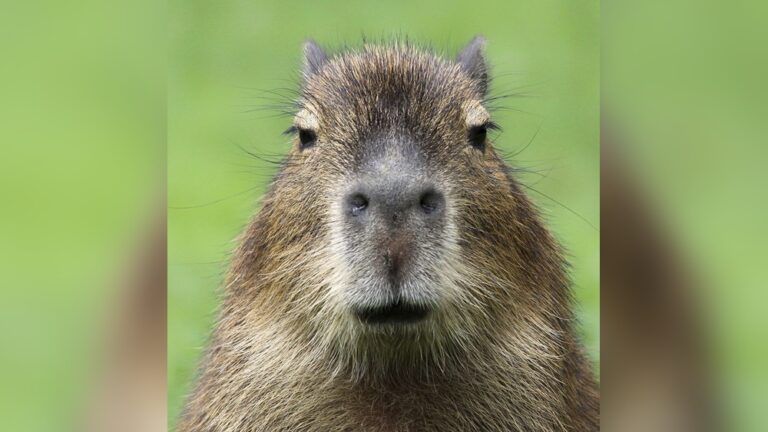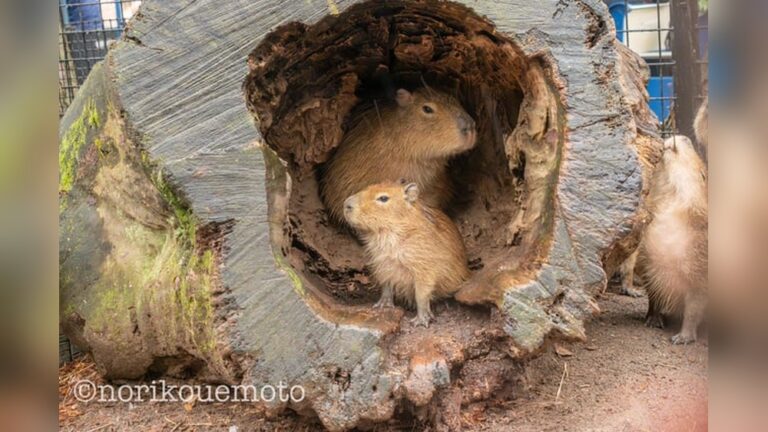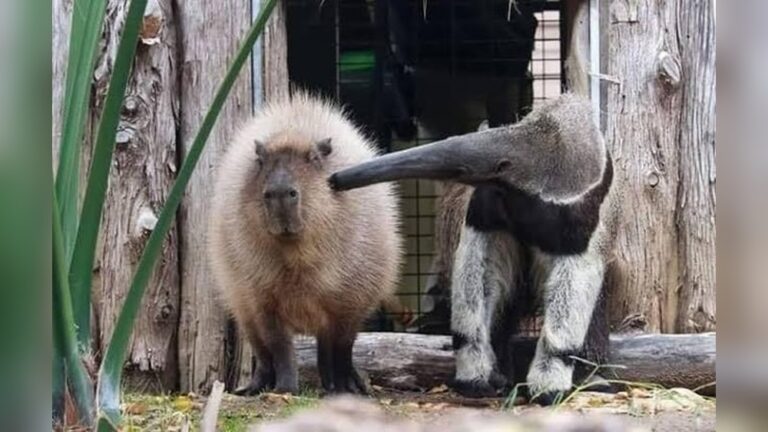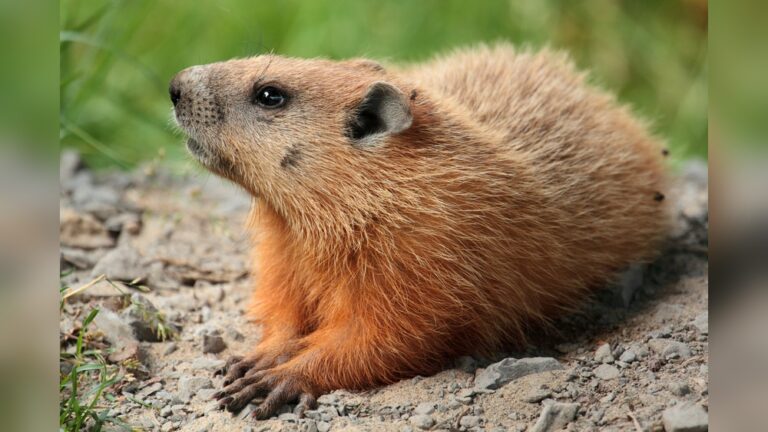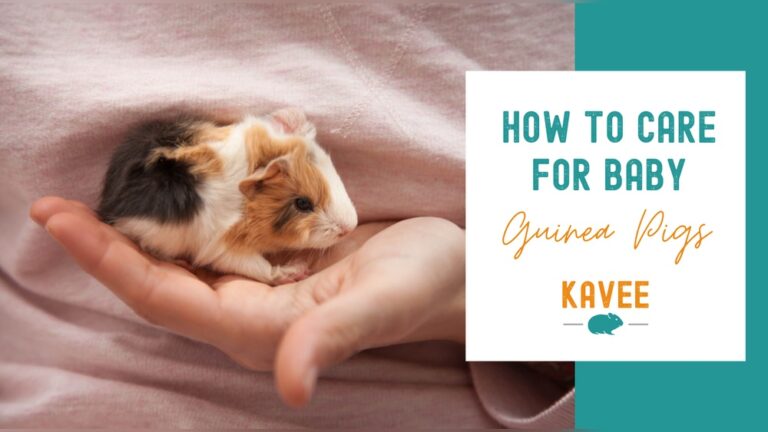How To Care For A Guinea Pigs Teeth: Essential Tips for Healthy Smiles
Your guinea pig’s teeth might be small, but they need big attention. If you don’t care for them properly, your pet could face pain, eating problems, or serious health issues.
You might not realize it, but keeping your guinea pig’s teeth healthy is one of the most important parts of their care. Want to learn simple, effective ways to protect your furry friend’s smile? Keep reading, because this guide will show you exactly how to care for your guinea pig’s teeth and keep them happy for years to come.

Credit: www.carrioxcapital.com
Guinea Pig Teeth Basics
Guinea pig teeth need constant care to keep them healthy. Their teeth grow all the time. This means they must chew often to wear teeth down. Understanding the basics helps you care for their teeth better.
Types Of Teeth
Guinea pigs have two types of teeth: incisors and molars. Incisors are the front teeth. These teeth are sharp and used for cutting food. Molars are at the back. They help grind food into small pieces for easy digestion.
Teeth Growth Patterns
Guinea pig teeth grow about 2 millimeters each week. This steady growth keeps teeth long enough to chew well. Chewing hard foods like hay helps stop teeth from getting too long. Teeth that grow too long cause pain and eating problems.
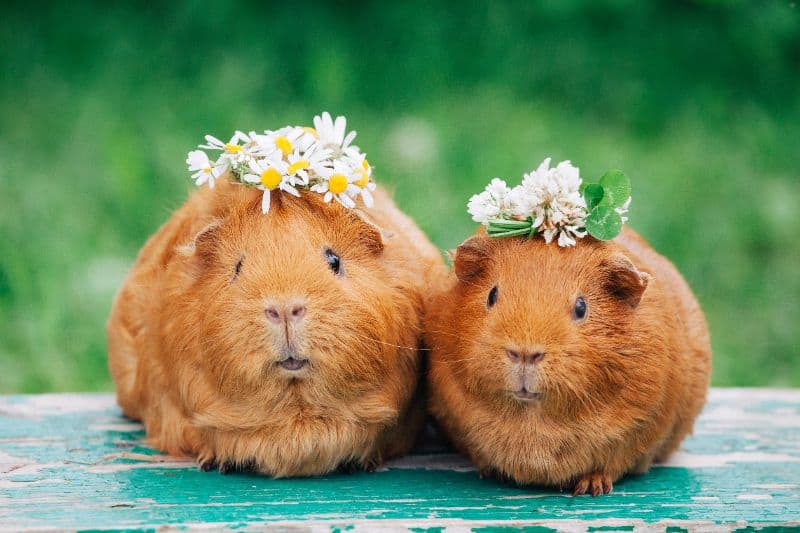
Credit: www.dupontvet.com
Common Dental Issues
Guinea pigs need strong, healthy teeth to eat and stay happy. Their teeth grow all the time. This can cause dental problems if not cared for. Knowing common dental issues helps you keep your pet safe.
Overgrown Teeth
Guinea pigs’ teeth grow nonstop. If they don’t wear down naturally, teeth become too long. Overgrown teeth can hurt their mouth. They may find it hard to eat or close their mouth properly.
Malocclusion
Malocclusion means the teeth do not line up right. This problem stops teeth from wearing down evenly. Sharp points can form, causing pain and sores. Guinea pigs with malocclusion need quick care to avoid worse problems.
Signs Of Dental Problems
Watch for signs like drooling or bad breath. Your guinea pig may lose weight or eat less. Clicking noises when chewing can also show trouble. Check their teeth often to catch problems early.
Daily Dental Care
Daily dental care is very important for guinea pigs. Their teeth grow all the time. Without care, their teeth can become too long. This causes pain and eating problems. Regular care keeps their teeth healthy and strong.
Watch your guinea pig’s teeth every day. Check for signs of overgrowth or uneven wear. Healthy teeth look smooth and even. If you see any problems, consult a vet quickly.
Proper Diet For Teeth Health
Diet plays a big role in dental care. Guinea pigs need hay every day. Hay helps wear down their teeth naturally. Fresh vegetables add vitamins and minerals. Avoid sugary or soft foods. These do not help teeth wear down.
Offer fresh hay like timothy or orchard grass. It is rough and good for grinding teeth. Provide leafy greens such as kale and romaine lettuce. They support good overall health and teeth strength.
Chewing Materials And Toys
Chewing helps keep teeth from growing too long. Give your guinea pig safe chew toys. Wooden blocks or untreated sticks work well. These materials are gentle but effective.
Rotate toys often to keep your pet interested. Avoid plastic or painted items. These can harm your guinea pig’s mouth and teeth. Regular chewing reduces dental problems and boredom.
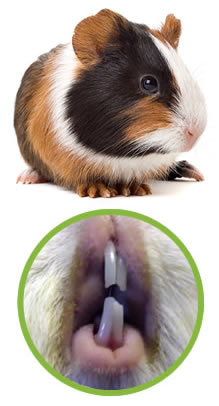
Credit: www.greencrossvets.com.au
Regular Health Checks
Regular health checks are key to keeping your guinea pig’s teeth healthy. Their teeth grow continuously, so problems can start quickly. Checking teeth often helps catch issues early. Healthy teeth mean your pet can eat well and stay happy.
Home Teeth Inspection
Look inside your guinea pig’s mouth once a week. Use a small flashlight and gently lift the lips. Teeth should be even and not too long. Watch for sharp points or uneven wear. Check for swelling or signs of pain. If teeth look unusual, note it for the vet.
Veterinary Dental Exams
Schedule dental exams with your vet twice a year. The vet will examine teeth more closely. They may use special tools to check for hidden problems. Professional care can fix issues like overgrown teeth or infections. Early treatment prevents serious pain and eating problems.
Treatment Options
Guinea pigs need proper care for their teeth to stay healthy. Teeth problems can cause pain and eating difficulties. Treatment options vary depending on the issue. Early care helps prevent serious problems. Understanding these treatments helps keep your pet comfortable and healthy.
Trimming Overgrown Teeth
Guinea pig teeth grow continuously. Sometimes, teeth become too long. Overgrown teeth can hurt their mouth and gums. A vet trims these teeth safely using special tools. Trimming restores normal length and improves eating. Regular checks help catch overgrowth early. Avoid trying to trim teeth at home. It can cause injury or infection.
Addressing Infections And Injuries
Infections can develop from broken or damaged teeth. Signs include swelling, discharge, or bad smell. A vet will clean and treat infections with medicine. Injuries need careful cleaning and sometimes pain relief. Severe cases may require tooth removal. Follow the vet’s advice for medicines and care. Monitor your guinea pig closely during recovery. Quick treatment reduces risks and speeds healing.
Preventive Measures
Taking care of a guinea pig’s teeth is important for its health. Teeth grow all the time. Without proper care, teeth can become too long and cause pain. Preventive measures help stop problems before they start. They keep your pet happy and healthy.
Balanced Nutrition
A balanced diet is key to healthy teeth. Guinea pigs need plenty of hay. Hay helps wear down teeth naturally. Fresh vegetables and fruits provide vitamins. Avoid sugary or sticky foods. These can cause tooth decay and other issues.
Provide clean water every day. Water helps keep the mouth clean. Vitamin C is important for guinea pigs. It supports strong teeth and gums. Use foods rich in vitamin C or supplements.
Safe Environment For Chewing
Guinea pigs need safe items to chew on. Chewing helps keep teeth at the right length. Provide wooden chew toys made for small pets. Avoid painted or treated wood. These can be harmful if chewed.
Remove anything sharp or dangerous from their cage. Check toys regularly for damage. Broken pieces can hurt your pet. A safe environment encourages healthy chewing habits.
How Smart Pets Lover Can Help You with How To Care For A Guinea Pigs Teeth
Practical Learning Opportunities to Keep Your Guinea Pig’s Teeth Healthy
Understanding your guinea pig’s dental health goes beyond just knowing the basics or spotting common dental issues—it’s about turning that knowledge into everyday care. By incorporating regular health checks and daily dental care routines, you actively prevent problems before they start. For example, observing your pet’s eating habits and gently checking their teeth can reveal early signs of discomfort or overgrowth, helping you act swiftly.
Smart Pets Lover encourages pet parents to embrace these small, consistent steps as part of their bonding time. Learning how to provide the right chew toys and fresh hay not only supports natural tooth wear but also enriches your guinea pig’s environment. This hands-on approach builds confidence and deepens your connection with your furry friend.
- Schedule routine dental exams with your vet.
- Offer a variety of textures in your guinea pig’s diet.
- Watch for subtle behavioral changes signaling dental issues.
If you ever feel unsure, reaching out to a trusted vet or pet care community can offer guidance and reassurance. Caring for your guinea pig’s teeth is a heartfelt journey—one where every nibble tells a story of love and attentiveness.
Frequently Asked Questions
How Often Should I Check My Guinea Pig’s Teeth?
Check your guinea pig’s teeth weekly. Regular checks help spot overgrowth or misalignment early. Early detection prevents dental problems and pain.
What Foods Help Keep Guinea Pig Teeth Healthy?
Provide hay daily as it naturally wears down teeth. Fresh vegetables and vitamin C-rich foods support dental health and overall well-being.
How Can I Tell If My Guinea Pig Has Dental Issues?
Look for drooling, difficulty eating, or weight loss. Overgrown teeth may cause mouth sores or decreased appetite. Visit a vet if symptoms appear.
Can Guinea Pigs’ Teeth Overgrow Without Proper Care?
Yes, guinea pig teeth grow continuously. Without proper chewing, teeth can overgrow, causing pain and eating difficulties. Regular chewing materials prevent overgrowth.
Conclusion
Healthy teeth keep guinea pigs happy and active. Feed them fresh hay daily to wear down teeth naturally. Offer safe chew toys to prevent overgrowth. Watch for signs like drooling or eating less. Regular vet visits catch problems early. Clean teeth help avoid pain and infections.
Simple care routines make a big difference. Your guinea pig will thank you with a bright smile. Keep these tips in mind for strong, healthy teeth.

